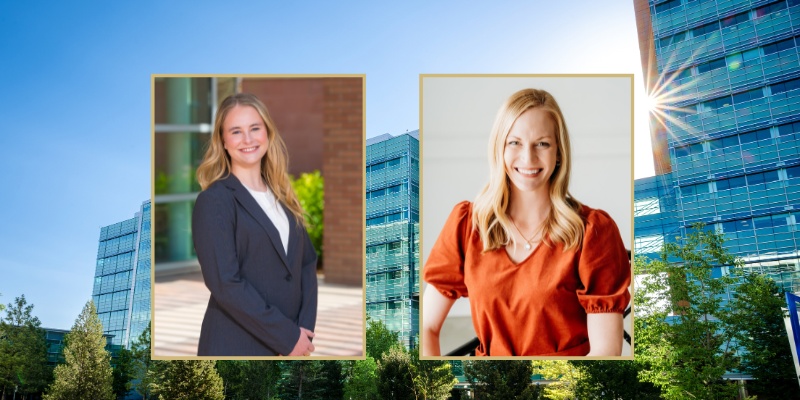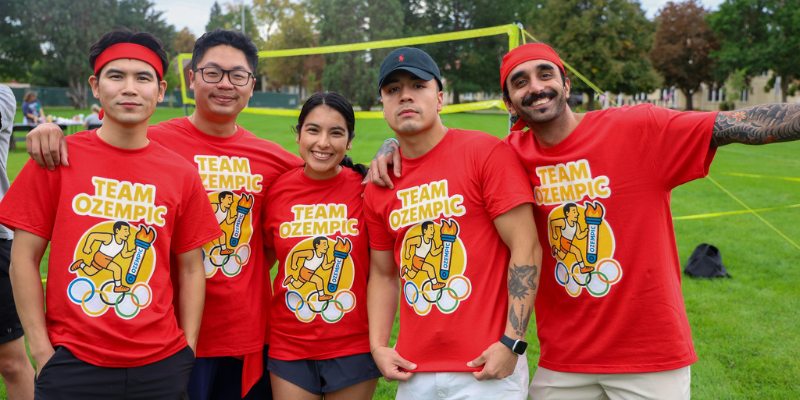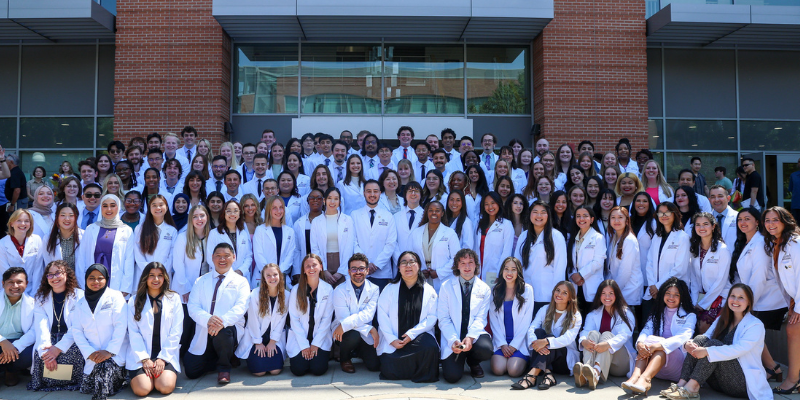When Faithful Anane-Asane left Ghana at age 17, he knew he would be back. Born and raised there, he moved to the United States in 2007. More than a decade later, he returned for an Advanced Pharmacy Practice Experience (APPE) rotation, where he was able to combine his internship with a family visit to enjoy good food and education at the same time.
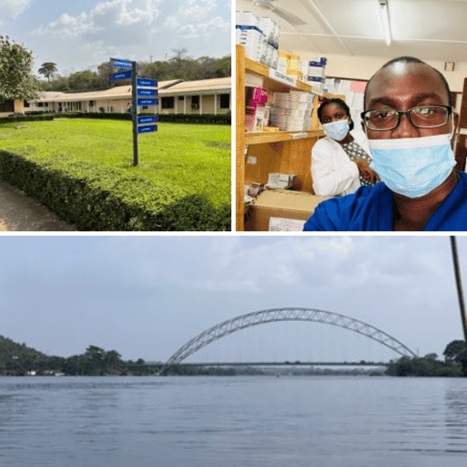
From top left: The VRA Hospital, Anane-Asane at his rotation, the VRA dam in Akosombo, Ghana. |
"My rotation was at the Volta River Authority (VRA) hospital, located in Akosombo, a small city in the Eastern region of Ghana [West Africa]," he explained. "I spent 70 percent of my 6-week rotation in the hospital. . . The other 30 percent spent in the community setting assisting patients with choosing over-the-counter treatment options for their illnesses."
The P4, soon to be PharmD graduate, made time to talk about his experience three days after he returned from his rotation.
According to Anane-Asane, the VRA hydroelectric plant and dam were constructed in the 1960s to help generate electricity to be supplied to the entire country and other parts of Africa. The VRA hospital, and primary site of his rotation, is a 100-bed hospital that was constructed initially to serve the health needs of VRA staff and locals who were affected by the construction of the dam and plant. VRA hospital is now known to be one of the larger community hospitals in the Eastern region.
Anane-Asane had a fascination with medicine growing up in Ghana.
“My mom always had a box of medication for whatever we needed,” he chuckled, “It was Tupperware. I thought she was a nurse or a doctor because she could always fix what we had, for a scratch or a runny nose, or whatever we needed.”
From there, Anane-Asane had more questions, and his curiosity about the profession grew. A major part of his decision to come to CU Pharmacy was its flexibility with international rotations, and that he had the support of faculty and staff to do one in Ghana.
“I chose my preceptor because he is a licensed pharmacist in both the U.S. and Ghana, and serves as the head of pharmacy services in all of Ghana for VRA,” Anane-Asane said. “He also owns multiple community pharmacies which is why I felt I would learn a great deal from him.”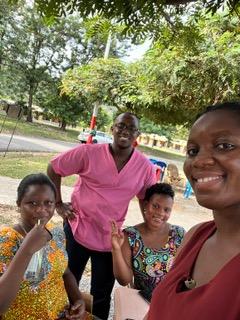 “My aunt is also the chief nurse there, so why not go stay with family, and enjoy the good weather and food, as I am learning pharmacy?” he said. “Eventually, I want to give back to Ghana, and I wanted to utilize this experience to learn. It really sparked that desire in me to promote healthcare, to promote education,” he said. “Having this experience made me feel that this is exactly why I went into pharmacy.”
“My aunt is also the chief nurse there, so why not go stay with family, and enjoy the good weather and food, as I am learning pharmacy?” he said. “Eventually, I want to give back to Ghana, and I wanted to utilize this experience to learn. It really sparked that desire in me to promote healthcare, to promote education,” he said. “Having this experience made me feel that this is exactly why I went into pharmacy.”
In Ghana, many people go to pharmacies as their main healthcare provider, Anane-Asane explained. The country has standardized healthcare, but each step of the way requires a cash co-pay upfront. The result is that people visit the pharmacist for a free consultation and a detailed explanation about what drugs they need. There is also less regulation on pharmaceuticals, so the pharmacist is a valuable asset to the community.
“As a pharmacist, I think we have a broad understanding of healthcare, and that is what I enjoy,” he said.
After graduation, Anane-Asane is moving again, this time to Boston.
“I got a fellowship in biopharmaceutical industry with Blueprint Medicines on global regulatory affairs,” he said. “The main job in global regulation is to be a liaison between your company and your regulatory agency. Your job is to facilitate the drug approval process for your company.”
He has some suggestions for incoming students.
“Don’t limit yourself,” he says. “You don’t know what you might enjoy, so learn as much as you can.”


